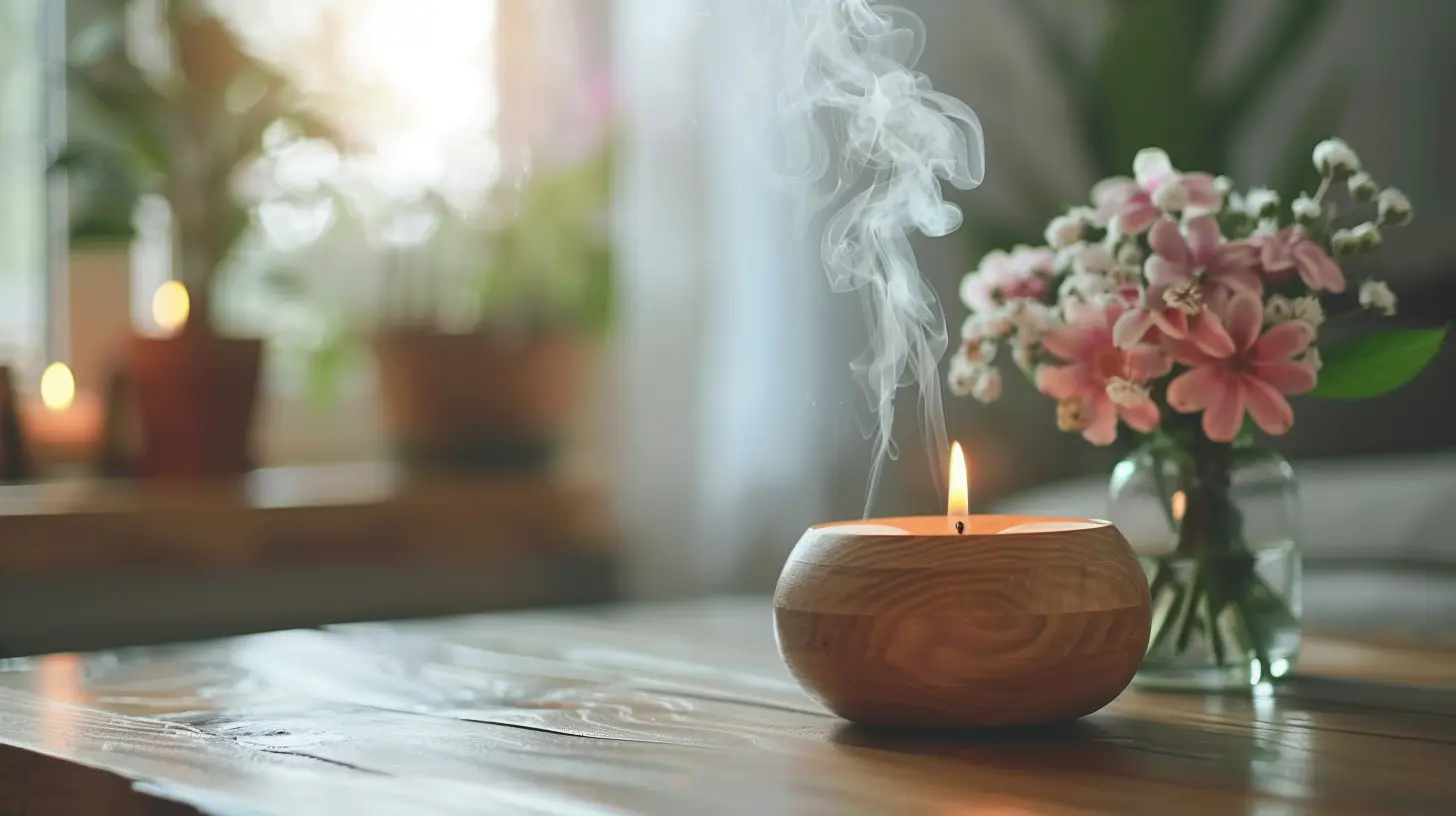Aromatherapy for Respiratory Health: What You Need to Know
4 September 2025
If you've ever felt like your breathing could use a little TLC, you're not alone. We’ve all had those moments—whether it’s during allergy season, a pesky cold, or just dealing with stale indoor air—that make us realize how important our respiratory health truly is. Enter aromatherapy, a natural and soothing way to breathe better and feel better.
But what exactly is aromatherapy, and how can it help support your lungs and overall respiratory system? Stick with me here as we dive into the whys, hows, and the practical tips you need to know. Trust me, by the end of this article, you'll feel like a walking encyclopedia (or at least a very informed health enthusiast) on the topic! 
What Is Aromatherapy?
Let’s start with the basics. Aromatherapy is the use of essential oils extracted from plants to promote physical and emotional well-being. These oils are like tiny bottles of nature’s goodness, each containing powerful chemical compounds that interact with our bodies in fascinating ways. In the case of respiratory health, certain essential oils can help clear up congestion, reduce inflammation, and even kill airborne germs.Think of it as nature's version of a spa treatment for your lungs. Sounds relaxing already, doesn’t it? 
How Aromatherapy Benefits Your Respiratory Health
You might be wondering, “Okay, but how exactly does inhaling a few drops of an oil do anything for my breathing?” Great question! When you inhale the aroma of essential oils, their active compounds travel through your nose and into your lungs. From there, they work their magic by targeting your respiratory system in various beneficial ways.Here’s a breakdown of how aromatherapy helps your respiratory health:
1. Clears Nasal Congestion
Remember the last time you had a stuffy nose and couldn’t breathe properly? Oils like eucalyptus and peppermint contain compounds like menthol and cineole that help open up your airways. They act like a natural decongestant, making it easier for you to breathe.2. Soothes Inflammation
Inflammation in the respiratory system can make breathing feel labored, especially if you’re dealing with asthma or allergies. Essential oils like lavender and chamomile have anti-inflammatory properties that can help calm irritated airways.3. Fights Germs
Airborne germs are often the culprits behind colds, coughs, and other respiratory issues. Lucky for us, essential oils like tea tree oil and thyme are known for their antimicrobial and antiviral properties. They can help neutralize those pesky germs before they wreak havoc.4. Improves Relaxation
Let’s not underestimate the role of stress in respiratory health. When you’re stressed, your breathing can become shallow and erratic. Calming oils like frankincense and sandalwood can help you breathe more deeply and feel more at ease.
Choosing the Right Essential Oils
Not all oils are created equal, and some are better suited for respiratory support than others. Here’s a quick guide to the best ones to keep in your aromatherapy toolkit:1. Eucalyptus Oil
This one’s a superstar for respiratory health. Packed with cineole, eucalyptus oil is excellent for clearing congestion, soothing sore throats, and promoting easier breathing.2. Peppermint Oil
Peppermint oil is like a breath of fresh air—literally. It contains menthol, which provides a cooling sensation and helps open up your nasal passages. Plus, it’s a go-to for easing coughs.3. Tea Tree Oil
This oil acts as a natural disinfectant, killing bacteria and viruses in the air. It’s perfect for keeping your environment clean and your lungs happy.4. Lavender Oil
While lavender is often associated with relaxation, it’s also great for reducing airway inflammation. It’s especially useful if you deal with allergies.5. Rosemary Oil
Rosemary oil is a fabulous choice for respiratory health. It helps clear mucus buildup and is known for its anti-inflammatory properties.
How to Use Aromatherapy for Respiratory Health
Alright, now that you know which oils to use, let’s talk about how to actually use them. The beauty of aromatherapy is its versatility—you can choose the method that works best for you. Here are a few tried-and-true options:1. Diffusing Essential Oils
A diffuser is one of the easiest ways to enjoy the benefits of aromatherapy. Just add a few drops of your chosen oil to a diffuser, and let the fragrant mist fill the room. It’s like creating a mini oxygen bar in your home!2. Steam Inhalation
This method is a game-changer for congestion. Add 2–3 drops of essential oil (eucalyptus is a classic choice) to a bowl of hot water. Then, cover your head with a towel and inhale the steam. It’s like a steamy facial for your lungs.3. Topical Application
You can apply diluted essential oils directly to your chest, neck, or soles of your feet. Just be sure to mix them with a carrier oil (like coconut or almond oil) to avoid skin irritation.4. DIY Sprays
Create your own room spray by mixing essential oils, water, and a bit of alcohol in a spray bottle. This is a great way to disinfect the air while also enjoying the therapeutic benefits of the oils.Tips for Safe and Effective Aromatherapy
While aromatherapy is generally safe, there are a few things to keep in mind to ensure you’re using it effectively and safely:- Dilute, Dilute, Dilute: Never apply essential oils directly to your skin without diluting them in a carrier oil. Undiluted oils can cause irritation.
- Patch Test: If you’re using an oil for the first time, do a patch test on a small area of your skin to check for allergic reactions.
- Avoid Overuse: A little goes a long way with essential oils. Using too much can actually overwhelm your senses or cause side effects like headaches.
- Choose High-Quality Oils: Not all oils are created equal. Look for pure, therapeutic-grade oils without additives or synthetic fillers.
- Consult Your Doctor: If you have a pre-existing condition like asthma or are pregnant, always consult your healthcare provider before using essential oils.
The Science Behind Aromatherapy
You may be thinking, “Does this actually work, or is it just hype?” Turns out, there’s a growing body of research supporting the benefits of essential oils for respiratory health.A 2010 study published in the journal Evidence-Based Complementary and Alternative Medicine found that eucalyptus oil helped reduce inflammation and cleared respiratory secretions in patients with respiratory issues. Similarly, a 2015 study on peppermint oil showed that its menthol content significantly improved airflow in the nasal passages.
While more research is still needed, the existing evidence points to the effectiveness of aromatherapy as a complementary treatment for respiratory health.
Final Thoughts
Aromatherapy isn’t just a trendy wellness buzzword—it’s a time-tested practice that can genuinely support your respiratory health. Whether you’re fighting off a cold, combating allergies, or just want to breathe easier, there’s an essential oil out there for you.So, why not give it a try? You’ve got nothing to lose—except maybe that pesky congestion or dry cough that’s been bugging you.
Grab yourself a diffuser, pick your favorite oils, and let the natural power of aromatherapy help you breathe a little easier. After all, everyone deserves a lung-filled sigh of relief, don’t they?
all images in this post were generated using AI tools
Category:
AromatherapyAuthor:

Sophia Wyatt
Discussion
rate this article
1 comments
Riven McPhee
Thank you for this informative article! I appreciate the insights on aromatherapy's benefits for respiratory health. It's a gentle reminder of nature's power in supporting our well-being.
September 9, 2025 at 2:27 AM

Sophia Wyatt
Thank you for your kind words! I'm glad you found the article insightful. Aromatherapy truly is a wonderful gift from nature!


